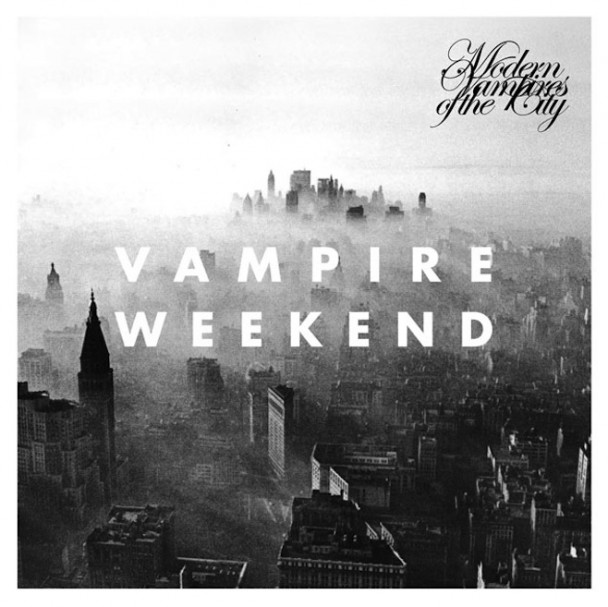“I’ve had dreams of Boston all of my life,” sang Ezra Koenig, lead singer of Vampire Weekend, on “Boston (Ladies of Cambridge).” Part of the band’s 2008 release “Vampire Weekend,” “Boston” chronicles mythical caprices of the Massachusetts capital. However, five years later, Koenig and his gang of Columbia-graduated-20-somethings focus on a different city (New York) and different thematic ideas.
“Modern Vampires of the City,” released May 14, is the band’s third studio album, following the Grammy-nominated “Contra” of 2010. The spacious sound of this 2013 compilation stems from antiquated musical tendencies of Vampire Weekend: calypso, ska, Afro-pop, reggae and baroque.
And yet at the same time “MVOTC” differs from the cramped anxiety of “Contra.” Singles such as “Step” and “Ya Hey” offer powerful rhythm and exquisite piano arrangements. Calm tempo controls the progression throughout both tracks, disabling any sprawling erraticism, an eccentricity found on songs like “California English” from “Contra.”
This is not to say “MVOTC” contains no upbeat ballads. “Diane Young,” two-and-a-half minutes of crushing percussion, reaches an apex a minute before the song ends and evolves into an orgiastic combination of synthesizers, snare drums and distorted electronic guitar. But, as Koenig has said, each song on this album seems to have a purpose.
“If Diane Young won’t change your mind …” says Koenig on the hook, alluding to the specter of death using clever lyricism. “Do you think you can go ‘til the 18th hole?”
A prime example of the matured Vampire Weekend, “Diane Young,” among many songs, discusses mortality. “Wisdom’s a gift but you’d trade it for youth/Age is an honor — it’s still not the truth,” sings Koenig on “Step.” Other tracks focus on faith and religion in the modern world. “America don’t love you/So I could never love you,” Koenig harmonizes about God on “Ya Hey.”
“MVOTC” is both straightforward and metaphysical, traits “Contra” lacked. “Horchata,” a standout of the 2010 release, contains lyrics about drinks, pincher crabs and sandals. “Obvious Bicycle,” the opening track for “MVOTC,” references existentialism and the insignificance of life amid a minimalist beat and a pendulum of sweet piano. “You oughta spare the world your labor/It’s been 20 years and no one’s told the truth,” Koenig sings with poignant declaration.
And whimsicality, although reduced, still exists on “MVOTC.” “Finger Back” contains a high-pitched Koenig singing against ecclesiastical organs and crashing drums, fast-paced melody flashing in and out of the song. “’Cause this Orthodox girl fell in love with the guy at the falafel shop/And why not?” the singer ruefully asks.
But this break from the transcendental nature of “MVOTC” is an exception to the rule. Although one other song, “Worship You,” is reminiscent of “Contra” in terms of musical performance, the majority of “MVOTC” distinguishes itself from the sophomore attempt. And even “Worship You” breaks into an incomparable horn section, a dazzling spectacle of brass music reconstructed and channeled through a synthetic output.
Vampire Weekend employs a magical lyricism, enchanting and wonderful, that underscores its development as a group. In this case, improvement is synonymous with maturation, both sonically and lyrically. For the indie pop group, an interminable expanse of possibility looms on the horizon.

